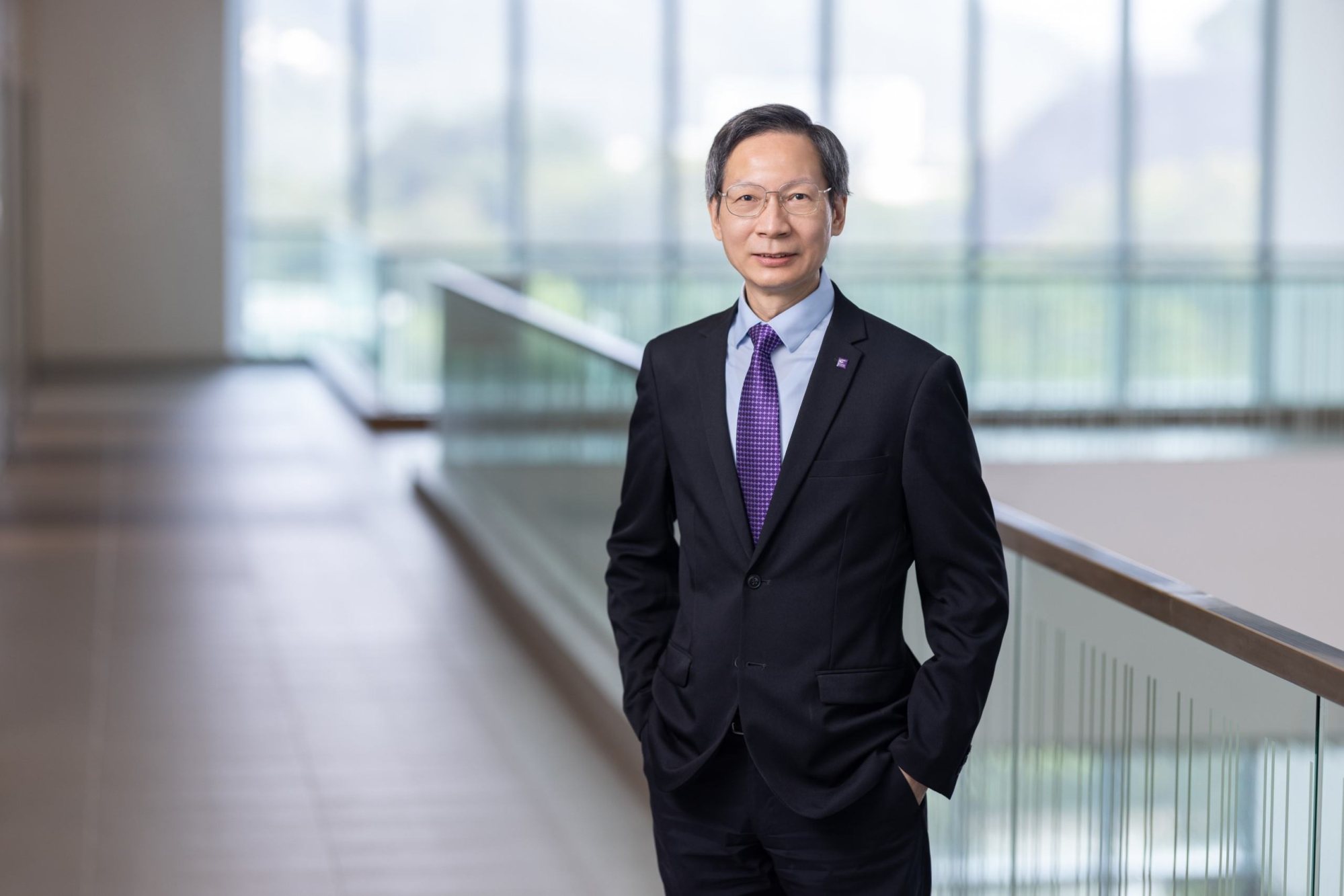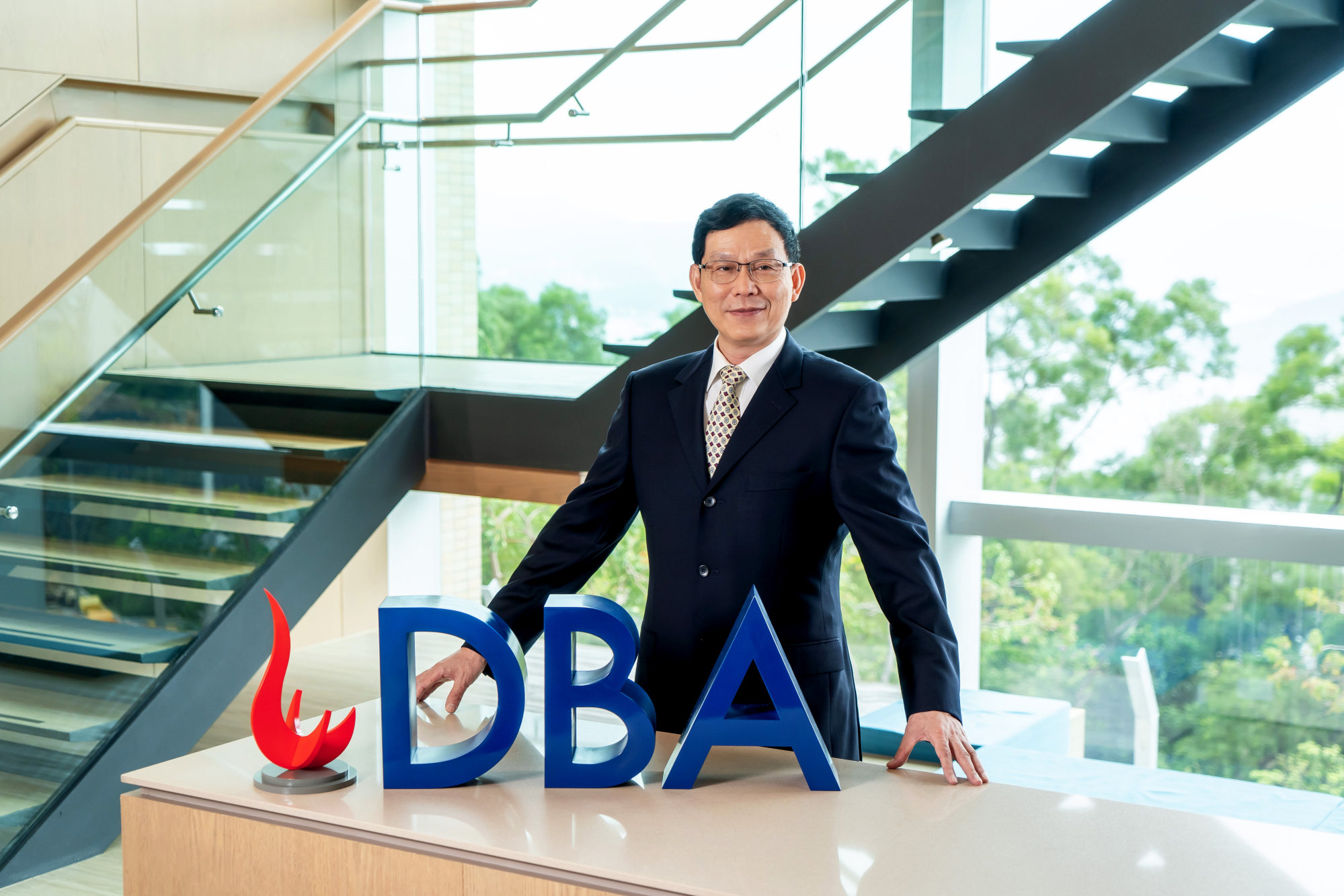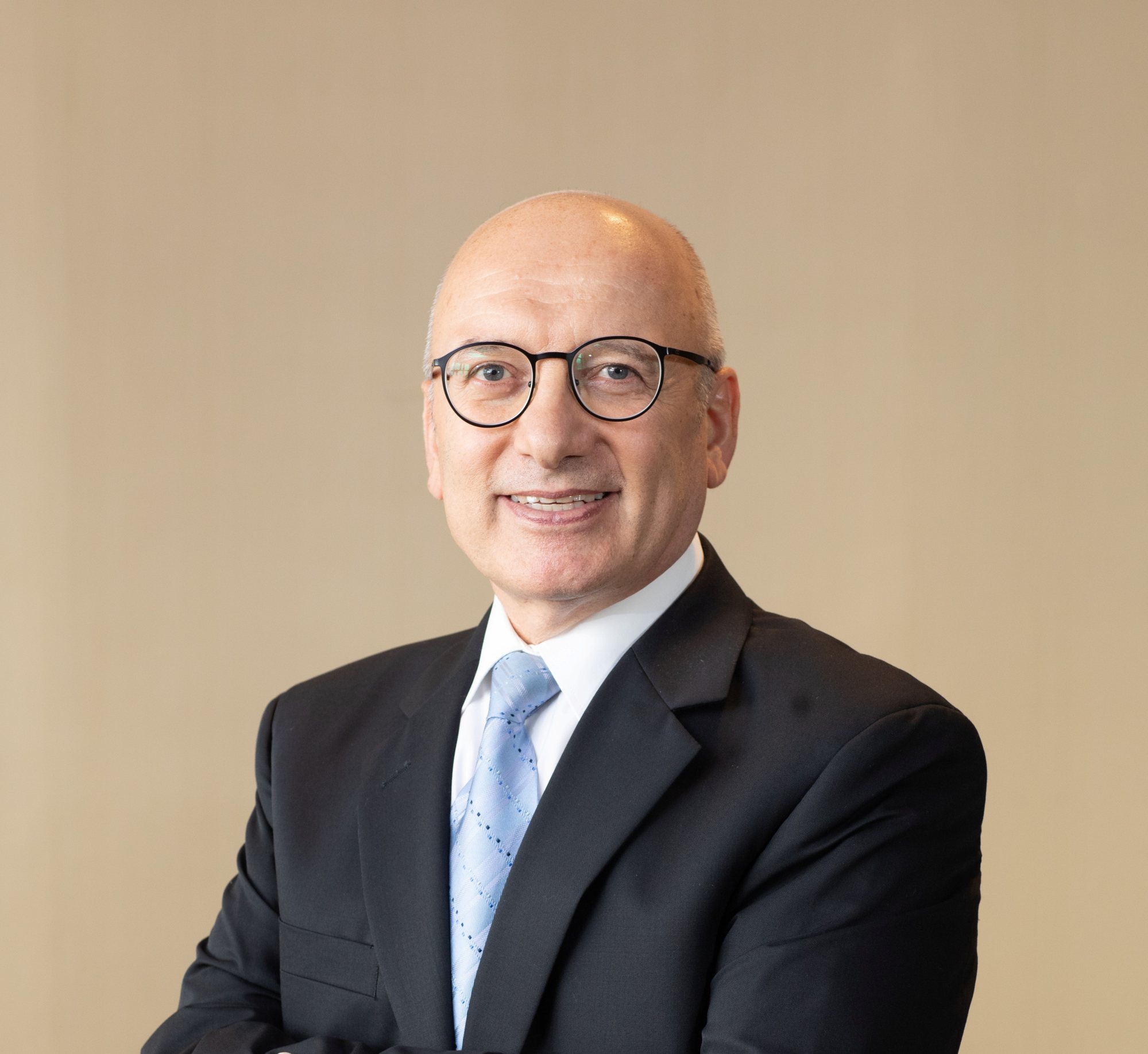
How business schools in Hong Kong universities are tailoring their EMBA and DBA postgraduate programmes to prepare executives for the new global challenges
- While every good programme covers the essentials, business schools are well aware that graduates also need that special something extra to give them an edge
- Given the rising complexity of challenges now facing corporate executives, there is a special emphasis on improving analytical and decision-making skills
When fast track executives first decide to take a postgraduate business programme, most have a pretty clear idea of what to expect. That is usually the result of a detailed review of the various options; discussions with current students and alumni; campus visits wherever possible; meetings with faculty members; and useful advice from friends, family and colleagues.
Of course, the purpose of all that research is not simply to know about the curriculum and electives, the likely workload, the typical mix of applicants, and the opportunities to network beyond the classroom. It is to put a finger on what truly differentiates one programme from the others and what makes it the right fit for someone from a particular sector or industry – an entrepreneur as opposed to a senior manager, an international brand builder rather than someone more focused on fixing problems in their own organisation.
Every good programme, of course, will cover the essentials, ranging from finance and marketing to strategic planning, leadership and digital transformation. But business schools are well aware that candidates are also looking out for something extra. That makes it essential to keep revising the topics, offering new choices, and finding inventive ways to give students an edge.

“The key is to equip students with the necessary practical knowledge to cope with a changing world and solve complicated issues,” said Professor Howard Lam, director of the executive MBA (EMBA) programme at Chinese University of Hong Kong’s (CUHK) Business School.
“But we must also keep updating the curriculum to reflect changes in the business world and what society needs. So, our new subjects include applied entrepreneurship and innovation technology. And we have introduced seminars on the hottest topics such as ESG, Web3 and cryptocurrency,” he added.
Lam noted that his overriding aim is to nurture top-notch management talent to work in Hong Kong, mainland China, and around the world. In view on the rising complexity of challenges now facing corporate executives everywhere, the CUHK programme puts special emphasis on improving analytical and decision-making skills, seeing this as an effective way of enhancing any enterprise’s competitive advantage.
The basic requirement sees students take seven core courses in the first year, including units on accounting, corporate governance and macroeconomics. They then pick nine to 11 electives in the second year, which allows them to delve into subjects such as China business and organisational psychology.

“Our EMBA reflects CUHK’s vision, which is to combine tradition with modernity and to bring together China and the West,” said Lam, noting the programme will mark its 30th anniversary in 2023. “There are six pillars – theory, practice, internal and external networks, strategic perspectives, and social contribution. And the relevance comes from Hong Kong’s strategic position within China and the Asia-Pacific region,” he added.
While the school makes a point of embracing change and the latest technology, there is no doubt that faculty and students have been glad to return to face-to-face learning. Over the last couple of years, online classes were essential and the flexibility they provide remains part of the mix. But group discussions and in-class debates really come alive when people are in the same room and able to interact without the intervention of a screen and a keyboard.
Also set for a welcome return are international study trips. These did continue in a modified online format during the pandemic, making it possible to attend lectures remotely and collaborate with counterparts overseas on research-based projects. However, the goal now is to get CUHK’s EMBA students travelling again, so they can take full advantage of strong links with partner institutions in Oxford, Cambridge, Tel Aviv, Germany and the United States.
“Such trips let students learn about leadership, the latest technology and advances in industry by attending workshops and visiting the local companies. The experience can also inspire them to think about their own career paths and their approach to business,” Lam said.
He emphasises how important this is even for individuals who have typically held a management position for at least five years when starting the programme. What attracts them, though, is the chance to move ahead in their profession, keep pace with change and gain the satisfaction of fulfilling their potential.
Completing the EMBA is just the beginning of a lifelong journey with CUHK, according to Lam. Alumni can join regular networking and charity events, conferences, gala dinners and talks by prominent business leaders. They are also welcome to share their experiences with candidates at admission events.
At City University of Hong Kong (CityU), the EMBA has a similar focus on providing executives with the skills and know-how to be transformative in their day-to-day roles and thereby have a lasting impact.
To achieve this, a deliberate shift has taken place in pedagogical approach, moving from professor-led teaching to experiential learning with an emphasis on executive dialogues. Accordingly, the EMBA programme is now built around intensive five-day meetings for each module, allowing the students to connect with eight to 10 business leaders well known for their ability to innovate and effect real transformation.
“We have done this to satisfy the needs of students in fast-changing business environments,” said Michael Wong, EMBA director and associate professor of finance at CityU. “They are required to do group projects and write individual essays. The project assignments are mostly real case problems designed by our guest speakers. That allows the EMBA students to provide solutions for real business pain points.”
Although in-person networking remains a crucial part of the overall experience, the current approach will see more group discussions and project presentations conducted online. And, using the available technology, students are expected to stay in close contact with the rest of their study group as they prepare for and follow up on the more intensive remote meetings.

The thinking behind this is that business practices, strategies and means of communication are changing around the world, so it makes perfect sense to adopt these innovative workplace methods in teaching CityU EMBA courses.
“Another key theme for us is Asia Connect,” said Wong, noting that a typical intake includes executives working for multinationals, partners in professional firms and those taking an influential role in family-held businesses.
As the Asian market is the fastest-growing for consumer products and professional services, having the right networks can open the door to global expansion. Wong said CityU gives students exposure to business issues and important developments in the region, which helps them gain in-depth insights into how to expand their own activities into new areas.
The programme’s 300-strong alumni association also plays a big part in promoting useful links and opportunities, organising regular events and maintaining a dialogue with the university to help ensure each course accurately reflects what is really happening in the world of business.
For candidates considering the Kellogg-HKUST (Hong Kong University of Science and Technology) executive MBA, one thing is likely to catch the eye immediately. The programme, which is run in Hong Kong by HKUST Business School, has just been ranked best of its kind in the world for the 11th time, according to a Financial Times assessment.
That is a fairly weighty endorsement, suggesting the combination of courses in traditional subject areas and in the techniques needed to transform a business is hitting the mark.
Students take two intensive modules each month and, overall, the emphasis is on three specific types of skill: behaviour in learning organisations, international management, and managing groups of cooperating firms to be internationally competitive.
Everything kicks off with a live-in week on campus, which leads into core modules to build the foundation of skills and expertise required to lead any kind of organisation with decisiveness and confidence.
Subsequently, the advanced modules introduce strategies to deal with new challenges and evolving demands. And with a choice of more than 40 electives taught in or from 18 locations around the world, there are chances to specialise, branch out and gain a truly international perspective.
To reinforce that aspect, there is also a global network week, offering the chance to connect with 500-plus participants in partner programmes, each of whom has a story to tell about market conditions, financing growth, staff expectations, and what it takes to be an effective leader.
Prospective applicants should also note that the school encourages a “high-impact, low-ego ethos”, believing that a classroom culture which values team players who are willing to collaborate is better for all. This allows students to express themselves in a safe environment, discuss ideas openly, share knowledge, and learn from each other in a positive ambience.
It is also linked to the broader point that senior executives have an obligation not just to contribute to their businesses, but to work for the betterment of society at large. In the end, that is perhaps the truest test of someone who is looking to demonstrate the power to transform. And a responsibility to do that is clearly evident in the current class, which includes 16 different nationalities and has an average age of 41.
The same principles and values underpin another postgraduate degree offered by HKUST Business School – the DBA (doctor of business administration). Introduced in 2021, the four-year, part-time programme is designed for senior leaders who want to conduct meaningful research into a topic which has potentially extensive implications for an organisation or industry.

“It is a rigorous academic journey, which offers exposure to the latest business trends, teaches the methodology needed to research and write a thesis, and provides expert supervision as students work towards that goal,” said Professor Zheng Shaohui, academic director for the HKUST DBA. “Original ideas are discussed, tested and developed into far-reaching insights, which can then help to optimise management decisions and enhance organisational effectiveness.”
As students progress, they benefit from an interdisciplinary approach to exploring new topics. The initial coursework includes analysis of past research papers and critiques, as well as practise in writing research proposals on different themes in order to master the expected academic style and tone.
“Our typical cohort size is 10 to 15 people to ensure the highest quality of learning and sufficient faculty attention for each student,” Zheng said. “Candidates usually have at least 12 years of managerial experience and the motivation to make an impact in an area that intrigues them.”
Under normal circumstances, all courses take place on campus and students are actively encouraged to attend in person so they can take full advantage of chances to interact with classmates and network with high-profile guest speakers.
However, if necessary, a hybrid mode of study is also available for anyone who cannot travel freely to Hong Kong, and all the technology is in place to operate with remote teaching.
Zheng said the two cohorts taking the DBA so far include senior executives looking to solve real problems, C-level strategists, entrepreneurs, seasoned public servants and professionals interested in alternative careers in academia.
Hong Kong Baptist University (HKBU) has also identified the demand among senior professionals in diverse fields for a formal postgraduate qualification to complement their workplace experience. Obtaining that extra degree is by no means straightforward, but accepting the challenge makes it possible to achieve a number of personal goals.
Among the most important are the chances to re-evaluate, get up to date with thinking in the wider business world, find answers to a persistent problem and add a new string to one’s bow.
“Our aim is to create a ‘chamber of wisdom’ where prominent practitioners meet world-class scholars, practical wisdom meets theoretical insights, and subjectivity meets rationality,” said Professor Huang Xu, DBA programme director and chair professor of management at HKBU’s School of Business. “After completing the programme, graduates have the analytical skills to do independent scientific research which can be applied to solve existing problems in real-life work scenario.”
A recent review of the curriculum led to the introduction of a new course on philosophical issues in business and management. The purpose is to highlight the nature of scientific work in different organisations and how management can play a pivotal role in guiding others towards a better understanding of important natural and social phenomena.
The other taught courses, taken before attention turns to thesis preparation, deal with everything from strategic management and corporate governance to statistics, data analysis and qualitative research methods.
Huang said HKBU plans to offer a double DBA degree with an institution in Europe to enhance its international collaboration and provide an even more diverse learning environment for students.
Initially launched in 2006, the DBA offered by CityU has evolved with the times, meaning that students have more recently taken on research topics ranging from big data and fintech to data security and China’s Belt and Road Initiative. The broad objective, though, remains the same: to focus on solving important business problems and to engage in rigorous research which has practical relevance and can bring benefits to society.
The core elements of the programme, including residential workshops and methodology courses, mainly concentrate on how to do research, from reviewing the literature to finding useful contacts, conducting surveys, drafting a thesis proposal, and writing in the expected academic style. There are also electives, which are chosen depending on personal interest and the general area of research.

“Our students are successful leaders with a passion to solve complex business issues that have implications well beyond the boundaries of their organisations,” said Professor Muammer Ozer, programme director of the CityU DBA.
The yearly intake is limited to ensure quality and one-on-one attention, and students learn from CityU’s world-renowned professors who have extensive global expertise and in-depth knowledge of China, Ozer said, adding that academic literature and business practice are constantly monitored and updated, without major structural changes in the programme.
Hybrid teaching methods allow overseas-based students to join live online classes and play a full part in any discussions. Using the technology also illustrates some of the pros and cons of remote working for major enterprises, which looks sure to become a subject for further detailed study.
“Because the research undertaken by our students is highly practical, rather than purely academic, businesses can apply it to their own needs,” Ozer said. “The work they do contributes to the universal body of knowledge, and the training they go through has a lasting impact on their careers.”
